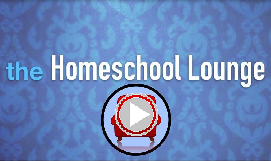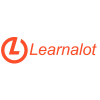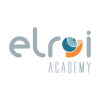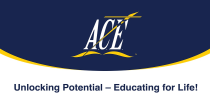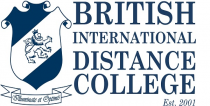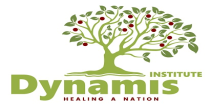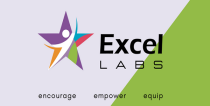Matric Overview
Introduction
Matric is the term generally used when referring to the qualification a learner obtains after finishing their school training or home education. A matric is often necessary for homeschool learners to get employment or admission to further education, especially a matric with an exemption.
In the past the South African matric qualification was under the control of the heads of universities and the purpose of the matric was to set a standard according to which a person could be admitted into the university. With the acceptance of the new constitution in 1994, the control over the South African matric was assigned to the Minister of Education. The Minister of Education subsequently changed the matric so that it not only prescribes the standard but also the content. Many parents are not satisfied with the standard or the content. As a result, there is a growing demand for alternative routes to obtain a matric, and many homeschoolers choose international alternatives.
Approved school leaving certificates in South Africa
Universities South Africa (USAF) is a membership organization representing South Africa’s universities. They are being advised on minimum admission requirements for the university by the matriculation board which is a statutory advisory committee. The USAF approved school leaving certificates can be summarized as follows:
- SOUTH AFRICAN MATRIC
- CAPS National Senior Certificate (NSC)
- IEB (Independent Examination Board) National Senior Certificate (NSC)
- SACAI (South African Comprehensive Assessment Institute) National Senior Certificate (NSC)
- Vocational - NC (V) level 4Vocational - NC (V) level 4 (not applicable for exemption purposes)
- Amended National Senior Certificate (Adult Matric) (post-2008)
- INTERNATIONAL MATRIC
- American (American High School Diploma and GED) GED completed after 2019 no longer apply for an exemption. It will depend on the University if they want to admit the applicants to a bridging/foundation program.
- British (Cambridge)
- Other (IB Diploma)
NB* (The Board does not issue exemptions for students that completed the NSC/NCV or National Senior Amend certificate (NSC). There is no regulation for these qualifications at this moment.
Requirements for these certificates/diplomas
- National Senior Certificate (NSC): need to show a record of 3 years of continuous assessment through Grade 10 - 12 and results of the National Gr 12 exams.
- Adult matric: need to be 21 years to write the exam. Pass 6 subjects of which 2 be language subjects.
- GED: need to be 17 years to write the exams and pass 4 subject tests (Maths, Science, Language, Social Studies).
- College-prep American High School Diploma: 23+ credits of high school/college-level subjects.
- Cambridge: 5 subjects passed. A combination of IGCSE- (Gr11) and AS level- (Gr12) or A-level (Gr13) subjects is required according to USAF regulations. (Cambridge brochure)
Costs
The approximate costs for obtaining a matric are as follows:
- NSC: Around R50,000 for Gr 10-12 (R20 000 for Gr. 10 and Gr. 11 and R30 000 for Gr. 12; excluding extra support). The prices of curriculum providers vary.
- GED (General Educational Development) + SAT = R10,000
- American High School Diploma = R20,000+ (3+ years for Grades 9-12 for the standard and college-prep Diplomas; 18 months to 2years for the Career Prep Diploma. Various free resources are available; exclude textbooks, tutor support)
- Cambridge = R30,000+ (approximately 3 years for IGCSE (Gr 11) and AS-levels (Gr 12). A-levels are not required by local universities. These are exam costs only and excludes textbooks, classes, laboratory work, tutor support, etc.)
- ACE = R75,000 (incl. textbooks, support, certificate) (3 years)
General comments
- It is difficult to calculate costs as tutors, books, laboratory fees, exam fees, and transport have not been added. If one considers real cost the GED and American Diploma will be the cheapest option as there are many free online resources to reduce the costs.
- Parents can choose the Rolls Royce version of the American High School Diploma which can cost R160,000+ if using a service provider or it can be much cheaper if making use of free resources. The costs are thus relative.
General guidelines to choose a matric
- If your child looks forward to a career in the public service (including the Army, Navy, and Airforce) or parastatals such as PRASA, choose the NSC. The public service does not like "foreign" qualifications and doesn't really care about the standard.
- If it is important to you that your child should do his matric in Afrikaans, choose the NSC because it is the only matric offered in Afrikaans. Note however that Afrikaans can be taken as a language subject as part of the American Diploma and Cambridge options.
- If your child wants to do engineering or medicine or another course for which there is strong competition many homeschoolers choose the Cambridge AS level with additional A-level subjects but NSC and the American High School Diploma are also options. Writing of the National Benchmark Tests and/or proof of scores on the American SAT (American equivalent to SA benchmark test) are becoming increasingly standard practice for admission by local universities.
- Anything else, go for a standard Diploma or GED which affords the child more time and exposure to a broader range of subjects to develop all his/her talents and discover the best career for him.
- It is advisable that families let their children be involved in researching their options and then discuss the pros and cons together. This teaches them valuable skills in how to research and go about making important decisions. It empowers them to take ownership of their education.
Going to university: Matric exemption
Students who want to study at a SA university must obtain a university exemption to be admitted to tertiary studies. The exemption indicates that a student has met the basic requirements and conditions at the secondary school level in order to be admitted to study for a degree at a university or other tertiary institution.
School-going children who write the NSC will automatically receive a matric certificate with exemption from Umaluzi if they meet the necessary subject and results in requirements.
Students with a foreign qualification need to apply to the matriculation board at Universities South Africa (USAF) for exemption. USAF will issue conditional or full exemption to students who meet the requirements in terms of the Higher Education Act (Act 101 of 1997) no 1317 dated December 2008.
To obtain admission to a university, the following requirements must be adhered to:
1) Comply with the general requirements set by the USAF; and
2) The entrance tests of the university must be passed. Many universities now make use of the National Benchmark Test for this purpose. There is an official NBT website - www.nbt.ac.za - where you will find all the relevant information. It is also strongly recommended that learners take a preparation course to familiarise themselves with what to expect and how the questions should be answered. At least one of the maths sections, if not all, is to be done without a calculator, which takes some getting used to. Good NBT results also help a lot towards getting accepted into certain university courses, e.g. medicine.
(for the MBChB course, Bachelor of Occupational Therapy, B.Sc. in Physiotherapy and B.Sc. in Dietetics to National Health Science – Placement tests are written); and
3) Comply with the requirements of the specific faculty.
4) Some universities have a limitation on the number of students admitted to a program. Examples include medical and law courses. In such cases, additional testing is done.
The general requirements of USAF
There are various ways that a home learner can comply with the general requirements:
1. Through obtaining an NSC endorsed by Umalusi. This may be done by making use of a curriculum provider who is registered with an examination board;
- For admission to higher certificate studies, candidates are required to achieve a percentage of 40% in their home language, 40 % in two subjects, and 30% in three subjects.
- For admission to a diploma study, a candidate is required to achieve 40% in their home language, 40-49% in four NSC subjects, and 30% in two other subjects.
- For admission to a university, a candidate is required to achieve 40% in their home language, and 50-59% in four high credit NSC subjects, 30% in two other subjects.
2. Through obtaining an international matric which is acknowledged by the matriculation board (eg Cambridge, American High School Diploma, etc). The following alternatives are available:
- Cambridge: Look at USAF subject choice guidelines for university exemption paragraph 13 (https://mb.usaf.ac.za/?s=United+kingdom ) and Cambridge brochure.
- GED plus an NQF 5 certificate. (With at least 120 credits and accredited with SAQA and CHE) www.saqa.org.za
- American High School Diploma plus minimum SAT scores. An SAT I score of 1600 with a sub-minimum of 550 for Critical Reading and 500 for Mathematics. An SAT II score of 1050 for English and one of Physics or Chemistry with a sub-minimum of 500 for either the English or one of the Physics, Chemistry, Biology, or World History scores obtained at one or more sittings. * (As of May 2015: an overall score of 1130 is required with a sub-minimum of 610 for Evidence in Reading and Writing and 530 for Mathematics. Or ACT mean of 22 with a 22 sub-minimum in English and 21 Mathematics. Or at least two subjects passed on grades 3,4,5 for Advanced Placement (AP) examinations of the American College Board.)
3. By admission through getting a degree at a foreign university that is recognized by the matriculation board.
4. Through a diploma from a college, or university.
5. Through being 23 years or older and getting 40% for a combination of subjects and a statement from the senate of the university stating that the student has a reasonable chance to complete the course.
6. Through being 45 years or older and obtaining a statement from the senate of the university that this student has a reasonable chance to complete the course.
7. Through being younger than 23 years and obtaining a statement from the senate of the university that this student has a reasonable chance to complete the course. This option should be considered only for extremely talented students.
Apply at the matriculation board for an exemption
Exemption for degree studies is needed for applicants who intend to register at:
- a South African University or
- an Affiliated Private Higher Education institution
A candidate can use the following certificates to apply. Each has its own exemption conditions. https://mb.usaf.ac.za/exemption-requirements
- South African Senior Certificate
- South African Senior Certificate (Amended) Adult Matric
- South African N5 qualifications
- Cambridge International Certificate
- US High School Diploma
- International Baccalaureate (IB) Certificate
- International Baccalaureate (IB) Diploma
- European Baccalaureate (EB)
The Matriculation Board can grant 2 exemption options.
- Complete Exemption
- Foreign Conditional Exemption
Application procedures
1. To enable us to formally assess your application for Exemption to study at a South African Public University or Private Higher Education Institution, please fill out the attached application form. In addition, you can submit your application and supporting documents (ID, School leaving Certificates, any other post-school qualifications, and proof of payment) in the following ways:
• Apply online: www.mb.usaf.ac.za/online-application
• Post to: Matriculation Board, PO Box 3854, Pretoria, 0001
• Drop off personally or by courier to 1267 Pretorius Street, Block E 1st Floor Hadefields Office Park, Hatfield, Pretoria
2. The exemption assessment fee for 2022 is R660.00 (non-refundable). The account details for exemption fees are as follows:
| NAME: | Matriculation Board |
| BANK: | ABSA, Sunnyside |
| BRANCH CODE: | 630345 |
| ACCOUNT NUMBER: | 4059036917 |
| REFERENCE: | Please fill in the Applicant's Surname & Name |
| FOR INTERNATIONAL PAYMENTS: | SWIFT CODE: ABSAZAJJ |
| Use Surname and Initials as a reference on the deposit slip |
N.B*Certification can only be done by the University where you plan to register, a public notary, or the SA Embassy if you are outside the Border of South Africa
Kindly go to our website: http://mb.usaf.ac.za under the heading for students and do an online assessment. This assessment will indicate whether you may qualify for an exemption. Upon completion of the assessment, please follow the instructions for the online application.
NB* PLEASE NOTE: The exemption fee is non-refundable. If you obtained your NSC post-2008 and did not complete a post-school qualification please do not apply for exemption as your exemption type is indicated on the certificate,
It takes up to 6-8 weeks to process (one can take the preliminary letter to any university while awaiting the official document)
Contact persons: This email address is being protected from spambots. You need JavaScript enabled to view it. or This email address is being protected from spambots. You need JavaScript enabled to view it.
Switchboard: 012 591-4401/2 or
general enquires This email address is being protected from spambots. You need JavaScript enabled to view it.
Institutes involved in the evaluation of qualifications
The Matriculation Board is a statutory advisory committee on minimum admission requirements to USAF ( Universities South Africa). Universities South Africa, formerly known as HESA (Higher Education South Africa), is a membership organization representing South Africa’s universities. In 1992 the functions of moderation, examination, and certification were transferred to Umalusi – while the function of determining minimum thresholds for degree studies was retained by the Matriculation Board.
Umalusi Council sets and monitors standards for general and further education and training in South Africa in accordance with the National Qualifications Framework Act. no 67 of 2008.
Umalusi is responsible for the certification of qualifications like NSC, NSC Amended (Adult Matric), Technical Matric (N3), National Certificate Vocational, and Adult Learning Centres.
In order to issue learners with certificates that are credible, Umalusi develops and evaluates qualifications and curricula to:
- Ensure that they are of the expected standard;
- Moderates assessment to ensure that it is fair, valid, and reliable;
- Accredits providers of education and training, and assessment;
- Conducts research to ensure educational quality;
- Verifies the authenticity of certificates.
Universities South Africa (USAF), formerly known as HESA (Higher Education South Africa) is a membership organization representing South Africa’s universities.
All students wishing to pursue a degree course (level NQF 7) at a South African university must meet the requirements for at least one of the possible categories of exemption, in order to be eligible to study for a degree. They must apply for and receive a certificate of exemption from USAF.
An exemption is not required if the student wishes to pursue a diploma course (level NQF6) or a higher certificate course(level NQF5) offered by a tertiary institution.
The National Qualifications Framework (NQF) is a comprehensive system approved by the Minister for the classification, registration, publication, and articulation of quality-assured national qualifications.
NQF 7 - 3 or 4-year DEGREE
NQF 6 - 2 or 3-year DIPLOMA
NQF 5 - 1 year Higher Certificate course
NQF 4 - NSC, American High School Diploma, GED, etc
SAQA, the South African Qualifications Authority is a statutory body, regulated in terms of the National Qualifications Framework Act No. 67 of 2008.
The objectives of SAQA are to
- advance the objectives of the NQF;
- oversee the further development and implementation of the NQF; an
- dco-ordinate the sub-frameworks.
Some SA institutions request a Certificate of Evaluation issued by SAQA when homeschool students apply with foreign qualifications.
For example, home education students with an American GED may apply to SAQA for a certificate of evaluation which states that the closest comparable SA qualification is the National Senior Certificate or NQF 4.
Study at an overseas university
Due to entrance requirements, student limits, and race quotas, it is sometimes impossible for a student to gain access to a South African university for a chosen course. The indications are that access to quality education at South African universities will become more limited in the future. Such students could consider studying at an overseas university or online university.
Students that are interested in studying in the USA can contact the International Placement Service of America.
Students that are interested in studying medicine can also explore studying medicine in China or Zambia.
Events
Legal & Research
Centres
Homeschool ABC
Support
Curriculums
GED through Learnalot - Grade 12 ...
Why enrol with Learnalot? With Learnalot, you have the flexibility ...
Elroi Academy (Gr 8 - 12)
Elroi Academy – Top-Rated Distance Education Provider in South ...
LEARNING TO READ EASY WITH THE ...
Parents and educators – these popular reading books are ...
Has no content to show!



